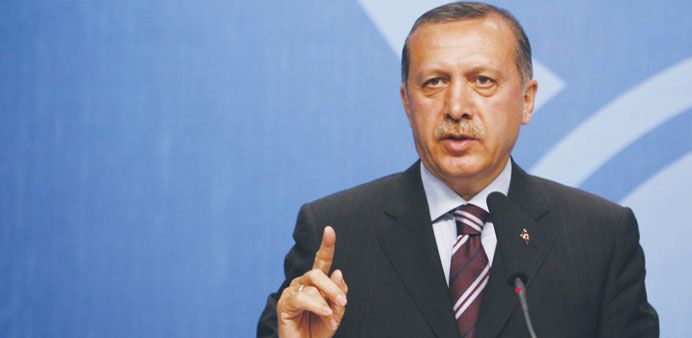AFP/Reuters/Istanbul
A Turkish court has imposed a blackout on media coverage of the kidnapping of dozens of Turks by Islamist militants in northern Iraq, the television watchdog said.
The Supreme Board of Radio and Television (RTUK) has delivered the court ruling to Turkish newspapers, televisions and websites, which were banned from reporting on the abductions and could face penalties if they violate the ban.
The blackout was necessary “for the security of Turkish citizens”, it said.
Prime Minister Recep Tayyip Erdogan had asked the media on Sunday not to write or talk about the issue, which is “risking the lives of our people”.
Fighters from the jihadist group the Islamic State of Iraq and the Levant (ISIL) kidnapped 49 Turks, including diplomats and their children, from the Turkish consulate in Mosul last Wednesday as they captured swathes of northern Iraq.
ISIL, which Turkey included in its list of terrorist organisations in early June, also seized 31 Turkish truck drivers earlier last week.
Erdogan said yesterday that “intense efforts” were being made to secure the release of the abducted citizens while accusing the Iraqi government of failing to protect the mission in Mosul.
“Diplomatic missions are under the warranty of the host countries. But the Iraqi central government failed to protect our staff,” he told lawmakers from his ruling Justice and Development Party (AKP).
The government came under fire for failing to foresee the danger and not evacuating the consulate sooner, but it said it judged that such a move would be too high risk given the security situation outside.
The Iraq kidnappings come amid growing concern in Ankara over the rise of radical Islamist groups across the border with Syria.
Turkey, which backs the uprising against President Bashar al-Assad, has repeatedly denied allegations that it is shipping arms to rebels or backing Al Qaeda linked groups in Syria.
Critics and rights groups have frequently accused Erdogan of seeking to cow the media, pointing to the high number journalists in detention, pressure on editors to steer clear of coverage critical of the government, and recent bans imposed on Facebook and YouTube as a corruption scandal swirled.
Erdogan has accused the opposition of trying to make political capital out of the Mosul events and said its comments on the subject risked the lives of those being held.

Erdogan: the Iraqi central government failed to protect our staff.
